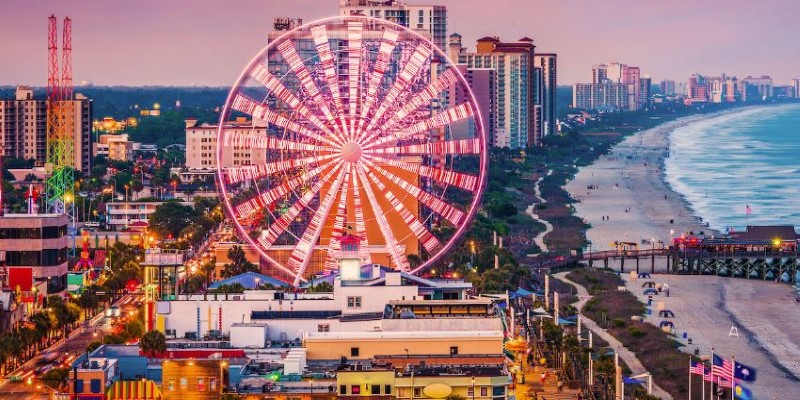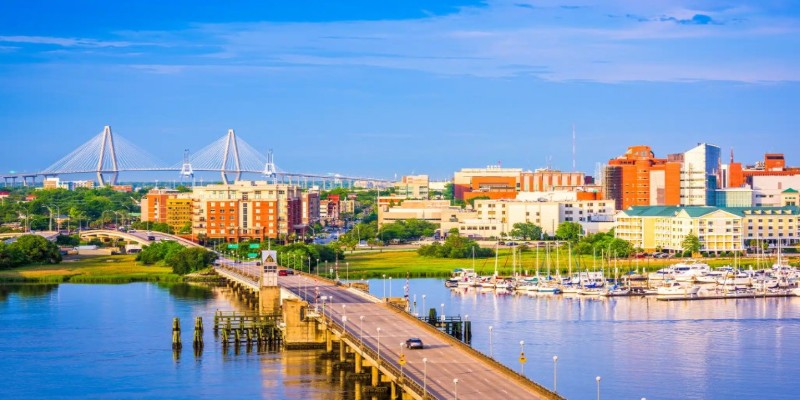South Carolina has been quietly drawing new residents for years, thanks to its mild winters, coastal charm, and slower pace of life. But moving isn't just about liking the weather or finding a cheaper house. Each state has its way of doing things, and South Carolina is no exception. Whether coming from a fast-paced city or just seeking a change, it's worth taking the time to understand what day-to-day life might look like. From taxes to hurricanes and healthcare, here's what to remember before packing up.
Things to Know Before Moving to South Carolina
The Cost of Living is Lower—But Not Everywhere
South Carolina’s overall cost of living tends to be below the national average. Housing, in particular, can feel like a bargain if you come from a major metro area. That said, prices vary widely by region. Coastal areas like Charleston and Hilton Head have seen prices rise sharply, especially in popular neighborhoods near the water. Inland cities such as Columbia and Spartanburg tend to be more affordable. Rural areas offer even more value, though access to amenities can be limited. Grocery costs, gas, and services are generally moderate but not immune to inflation.
Property Taxes Are Low, But Sales Taxes Add Up
South Carolina is attractive to newcomers because of its low property tax rate. It's among the country's lowest, making owning a home less financially stressful over time. However, that's partly offset by higher-than-average sales taxes. The state rate is 6%, but local counties can tack on extra percentages, especially in areas with lots of tourism or rapid development. If you're buying a new home, be aware that out-of-state buyers sometimes face higher property tax rates until they establish residency.
Summers Are Hot—and Humid

If you’re not used to southern heat, summer in South Carolina can be intense. Temperatures in July and August regularly cross into the 90s, and the humidity makes it feel even warmer. Air conditioning isn’t optional—it's a necessity. Storm season also kicks in during summer, especially along the coast. While hurricanes don't hit yearly, they're a real part of life here. Home insurance policies may require separate hurricane or flood coverage, and local governments take storm preparation seriously.
Healthcare Quality and Access Varies
Healthcare options depend heavily on where you live. Major cities like Greenville, Charleston, and Columbia have well-regarded hospitals and specialist care. Rural counties may have fewer options and longer travel times for routine or emergency care. If you're retiring or managing a chronic condition, it's worth checking local health systems before choosing a location. South Carolina hasn't expanded Medicaid under the Affordable Care Act, which may affect access and costs for lower-income residents.
Education Quality Is Uneven
If you have school-age kids, looking closely at the local school system before moving is important. Public education quality can vary significantly from one district to another. Some areas, particularly in and around Charleston or Greenville, offer strong public and private options. Others struggle with underfunding or inconsistent performance. South Carolina is working to improve its public schools, but outcomes still lag behind national averages in many places.
Job Market Is Growing in Pockets
Manufacturing, healthcare, education, and tourism drive South Carolina's job market. BMW and Boeing have large operations here, and tech is growing slowly in places like Charleston. Job availability and pay vary widely depending on industry and region. The unemployment rate is usually below the national average, but wages can be lower than you expect in larger metro areas. Remote workers often find the state appealing because they can bring higher salaries while benefiting from lower living costs.
State Culture Mixes Tradition and Change
South Carolina holds tight to its traditions. From shrimp boils to high school football and church on Sundays, life here moves to its rhythm. Southern hospitality is real, but so is a deep sense of community identity, especially in smaller towns. At the same time, the state is changing fast. Transplants from the Northeast and Midwest are helping reshape cities like Greenville and Charleston, blending new ideas with long-held local customs. It's helpful to arrive with respect for how things are done while staying open to the changes already underway.
Transportation is Car-Centric
Public transportation options are limited outside a few city centers. Owning a car is essential for most people, especially if you're not living downtown. Roads are generally in good condition, but traffic can be problematic in popular areas like Charleston during peak tourist seasons. The state has invested in infrastructure but doesn't expect subways or robust transit networks. The adjustment can be jarring if you're moving from a walkable city.
Outdoor Life is a Major Draw

From the Blue Ridge Mountains to the Atlantic Ocean, South Carolina has no shortage of outdoor spaces. State parks, beaches, hiking trails, and lakes give residents plenty of room to explore. The warm climate means you can enjoy the outdoors most of the year, with spring and fall offering especially comfortable weather. This access to nature can be one of the biggest selling points for retirees and families.
Taxes for Retirees Are Friendly
South Carolina tends to be kind to retirees. Social Security benefits aren't taxed, and deductions are available for other types of retirement income. The state's relatively low cost of living and mild winters make it appealing to people looking to stretch a fixed income. Several of the best 55+ active retirement communities are located here, especially in areas like Bluffton, Myrtle Beach, and the outskirts of Charleston.
Conclusion
South Carolina offers a mix of affordability, coastal charm, and steady growth, but it's not without challenges. It's a place that can feel easy to fall in love with, especially if you're ready to slow down and embrace a more laid-back lifestyle. Still, the realities of healthcare, education, weather, and job access should be part of your decision-making process. Learning the nuances of the state helps you settle in with fewer surprises—and makes it easier to enjoy the reasons you came in the first place.












